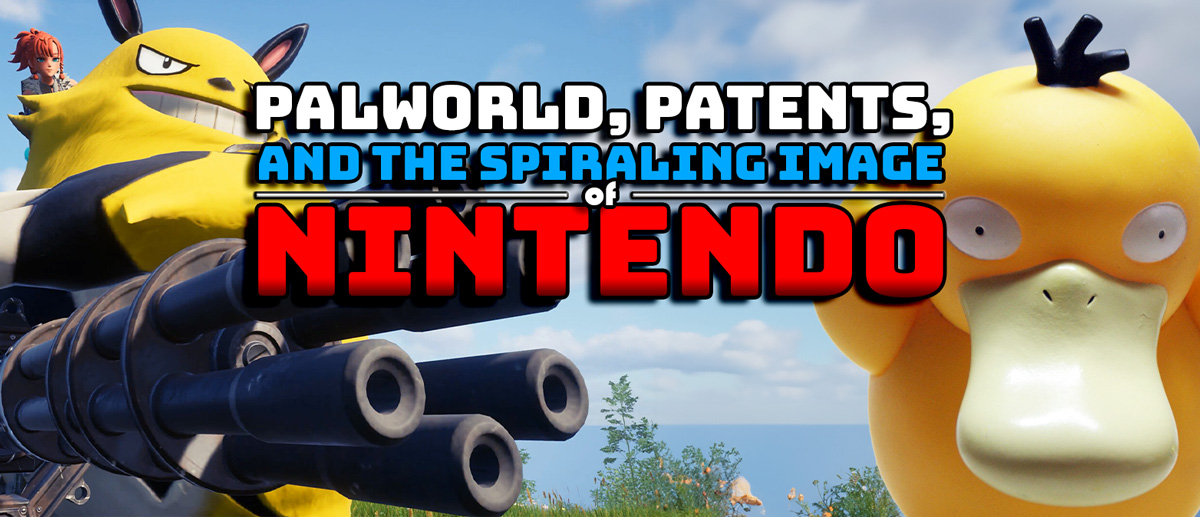
Palworld, Patents, and the Spiraling Image of Nintendo
DramaGaming FailsGaming News 7 2 Ayefkay May 9, 2025

The Fall of the Mushroom Kingdom
Once upon a time, Nintendo was the whimsical grandpa of the gaming world – charming, quirky, a little out of touch, but ultimately harmless.
Fast-forward to 2025, and that same grandpa is now shaking you down for $70+ per game, threatening to brick your console, and siccing their legal team on anyone who dares draw Pikachu with too much ambition.
What happened?
Nintendo used to be synonymous with innovation, magic, and – dare we say it – joy?
But lately, the company seems more focused on locking down profits than leveling up gameplay. It’s like they accidentally speedran the “EA-ification” of their brand. Remember when they were the plucky “good guys”?
Yeah. Me neither.
In the last few months alone, Nintendo has gone full chaos mode: slapping next-gen price tags on games that probably won’t even have functional voice chat, updating their user agreement to reserve the right to Thanos-snap your console into oblivion, and legally choking out games like Palworld for daring to dream a little different.
Gamers are fed up – and rightly so.
Because when Nintendo starts feeling more like a tech overlord than a game developer, you’ve got to wonder: is this still the same company that gave us Ocarina of Time, or are we dealing with the multiverse’s worst version of it?
Switch 2's $70+ Disaster
Ah yes, the magic number: seventy dollars – plus tax, DLC, and probably a subscription if they figure out how to charge you for blinking.
Nintendo confirmed that most Switch 2 games will roll out with a $69.99 – $79.99 price tag, putting them right in line with Sony and Microsoft’s current-gen pricing. But let’s be real here: Nintendo doesn’t make current-gen games.
They make “current-gen-but-two-steps-behind” games.
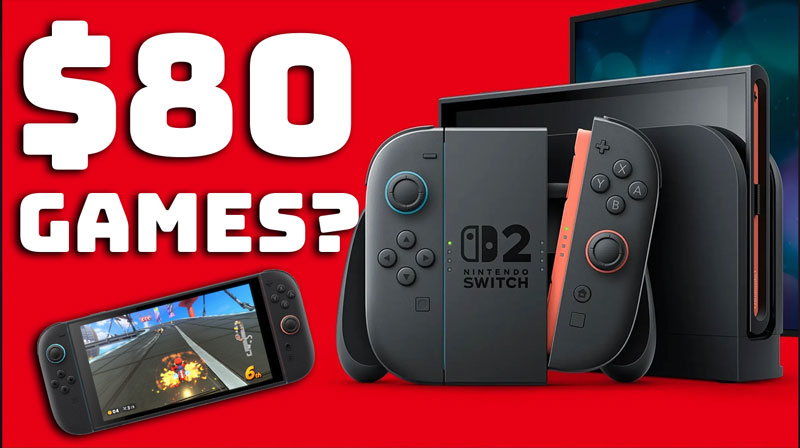
Image: Nintendo Switch 2 | Nintendo
You’re telling us that Mario Kart Deluxe 9 Turbo Ultimate Peach Edition or another Pokémon game slapped with reused animations and zero voice acting is worth the same as Elden Ring or Spider-Man 2?
Come on, Nintendo. We’re not made of rupees.
Historically, Nintendo got away with outdated tech because their games had heart, creativity, and nostalgia power. But now, they want AAA prices without AAA standards. They want their bag – and they don’t care if it’s filled with recycled assets, barebones features, and performance that runs like a Wiggler with a sprained ankle.
But wait, there’s more!
Nintendo’s funderful variable pricing strategy means that game prices will vary based on factors like development costs, gameplay complexity, and content length. For instance, Mario Kart World is priced at $79.99, and Donkey Kong Bananza at $69.99 .
This approach suggests that the more popular or content-rich a game is perceived to be, the higher the price tag they’re gonna slam it with.
We’re not trying to set a fixed price for all of them. We look at each one and determine the price based on the depth, the development that’s gone into the game and its longevity.
The pure greed of this strategy raises several concerns:
Subjectivity: Who determines a game’s “value”? Is it based on playtime, graphics, or brand recognition?
Consumer Trust: Variable pricing can lead to confusion and skepticism among consumers, especially if two games of similar quality are priced differently.
Market Impact: Other developers will absolutely adopt this model, leading to a fragmented pricing landscape that’s hard for consumers to navigate.
Sure, development costs are going up.
Sure, the industry is shifting.
But Nintendo hasn’t earned the right to stand on that pricing hill – not when their online infrastructure is still seemingly being powered by two dial-up hamsters and a coffee-stained GameCube in some back office of a bowling alley.
Raising prices without raising expectations is corporate dumbassery. And if this is the new normal for Nintendo, gamers may finally start questioning if the nostalgia tax is really worth it anymore.
Brick by Brick: The User Agreement Hellscape
Nothing screams “fun, family-friendly gaming” quite like the looming threat of your console being remotely bricked by the very company that sold it to you. That’s right, Nintendo recently updated its End User License Agreement (EULA) with language that gives it the power to effectively turn your Switch into a $300 paperweight – if they feel like it.
They don’t even have to prove you did anything wrong. If you’re accused of breaching their vague, catch-all terms — maybe you jailbroke your Switch, maybe your cousin downloaded an emulator, maybe you just looked at a Joy-Con funny – Nintendo reserves the right to shut it all down.
Remotely. No warning. No refunds. Just vibes.
They’re calling it a way to protect users and ensure fair play. We’re calling it totalitarian tech nonsense.
Because who wouldn’t want to live in a world where your console becomes unusable because you dared to install a custom theme or mod your Joy-Cons with RGB lighting?
And let’s be clear – this isn’t just all theoretical sarcasm.
Nintendo has a long, storied history of cracking down on anything even remotely “unauthorized.” Fan-made games? Canceled. ROM preservation efforts? Sued into the Stone Age. Content creators on YouTube? Demonetized unless they were part of Nintendo’s now-defunct content partner cult.
So imagine giving this company even more control. Imagine giving them the metaphorical keys to your house and being told they can change the locks if they think you violated their honor code.
You acknowledge that if you fail to comply with the foregoing restrictions Nintendo may render the Nintendo Account Services and/or the applicable Nintendo device permanently unusable in whole or in part.
And while we’re at it – let’s talk about the ethical implications.
If you buy a product, you should own it. Period.
If Nintendo wants to keep pretending they’re leasing you access to your own console, they can get in line with every other digital dystopia corporation. This move sets a dangerous precedent for user rights, digital ownership, and the very concept of buying a console versus renting it until Daddy Nintendo pulls the plug.
So the next time you power up your system, just remember: you’re not just gaming – you’re gaming with permission.
Palworld vs. The Pokémon Empire
Palworld launched swinging – adorable creatures, brutal survival mechanics, guns, crafting, base-building, and a whole lot of “How did they get away with this?” energy. But fast forward to 2024, and the game’s been slowly sanding down its sharper edges.
Not because players wanted it, but because Nintendo’s lawyers probably did. Animations have been changed. Character models quietly tweaked. It’s like watching a rebellious kid get dragged into court and told to wear a suit or else.
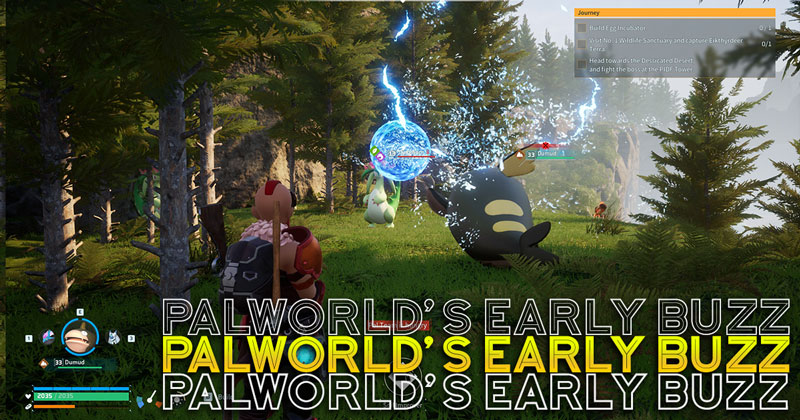
Image Credit: Palworld | PocketPair
And while some of the early Palworld designs definitely waltzed a little too close to Pokémon’s turf, here’s the thing: monster-catching games didn’t start with Pokémon.
In fact, in my opinion, Pokémon practically built its empire on ideas it didn’t invent.
Dragon Quest V – released in 1992 – let you catch and train monsters four years before Pikachu ever electrocuted your wallet. And Megami Tensei was doing creature recruiting way back in the ’80s, complete with battle mechanics and evolution systems that look suspiciously familiar now.
But instead of acknowledging the genre’s legacy, Pokémon (and by extension, Nintendo and Game Freak) are now acting like they invented the entire concept of catching monsters, riding them, and having them follow you around like loyal lapdogs.
And they’re doubling down with absurdly broad patents. We’re talking things like “throwing a ball to capture monsters” or “riding on a flying mount.” You know, basic gameplay mechanics that appear in dozens of other franchises – from World of Warcraft to Ark: Survival Evolved.
Watch out MLB, because I’m pretty sure baseballs were based off of Poké Balls too…definitely not the fact that a sphere is the natural, ergonomic shape of something to throw.
Asshats.
Image Credit: Drawing from Nintendo and The Pokémon Company’s U.S. Patent No. 12,246,255 | Gamesfray.com
At this point, it feels less like protecting intellectual property and more like a toddler clutching a toy they didn’t invent and screaming, “Mine!” Every time someone else builds something remotely similar, it’s not a conversation – it’s a legal takedown.
And it’s not just Palworld suffering under this creativity chokehold. Remember Shadow of Mordor‘s Nemesis System?
Critics and players alike called it revolutionary. It added personality and memory to enemies, made your interactions feel organic and dynamic. So naturally, Warner Bros. slapped a patent on it.
And then… nothing.
They didn’t expand on it in future games. They didn’t share it. They just locked it in a drawer like some cursed relic and made sure no other dev could touch it.
That’s the real cost of these overly generic patents: they don’t just protect ideas – they strangle them. Palworld isn’t a threat because it’s trying to be Pokémon; it’s a threat because it dares to ask, “What if monster-catching wasn’t so sanitized and corporate?”
And rather than competing creatively, Pokémon’s response – in my opinion – has been to slam the litigation button and hope no one notices how many of their so-called “original” ideas were part of the genre long before they ever trademarked a Poké Ball.
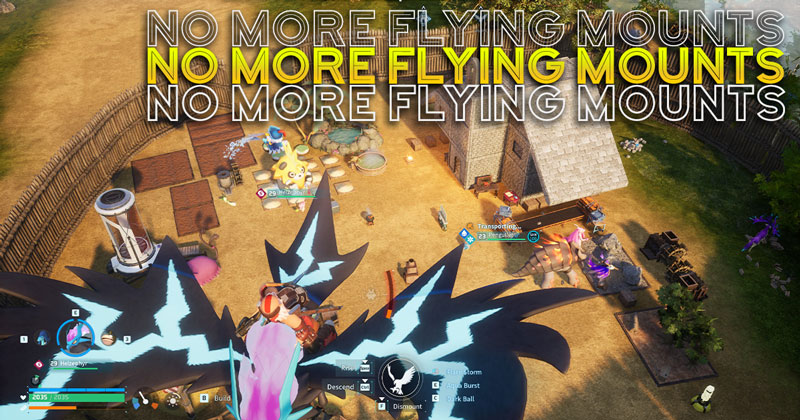
Image Credit: Palworld | PocketPair
So yes, Palworld has had to tone it down. The flamethrower-wielding penguin is now a bit more… diplomatically designed. But the question we should be asking isn’t “Did Palworld copy Pokémon?” – it’s “Why are we letting billion-dollar companies gatekeep entire gameplay genres based on vibes and vague patents?”
Because if throwing a ball at a monster is off-limits now, then maybe we should start patenting jumping, too.
The Broader Problem: Nintendo’s War on Innovation
This isn’t just about Palworld catching a lawsuit-flavored Pokéball to the face – it’s part of a long, ugly pattern. Nintendo has been waging a quiet war against innovation for years. Whether it’s mods, emulators, fan games, or even YouTube content, if you’re not marching in lockstep with the Big N’s carefully curated legacy, you’re a target.
Remember AM2R?
That fan remake of Metroid II that was arguably better than anything Nintendo put out that decade? Gone. Scrubbed from existence the second it started gaining praise.
Or the endless list of fan-made Pokémon games that barely last a week after going viral. It doesn’t matter how much effort, passion, or creativity went into it – if it didn’t come out of Nintendo HQ, it’s dead on arrival.
You’d think the company would be flattered people care enough to create in their world, but nah – if you breathe in the direction of a Triforce without paying licensing fees, you’re on a hit list.
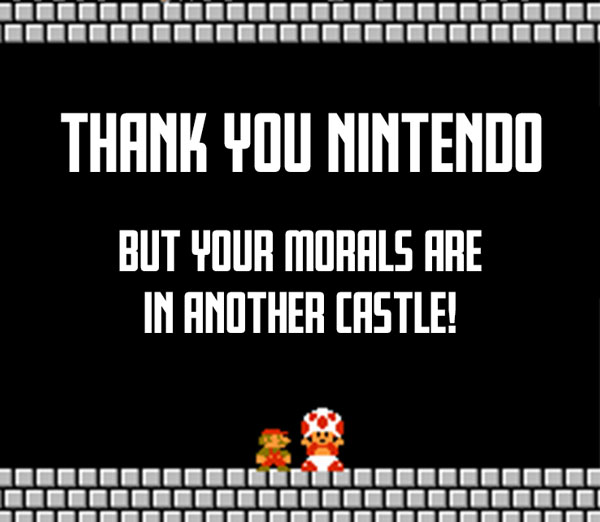
Original Image: Super Mario Bros. | Nintendo
And god forbid you want to play older Nintendo games on modern hardware. Legal emulation? Killed. ROM preservation? Attacked.
Meanwhile, Nintendo’s own online libraries are a trickle of overpriced nostalgia packages locked behind subscription fees. It’s not about honoring the past – it’s about selling it back to you one limited-time ROM at a time.
What we’re seeing now is just the next level of this control freak behavior.
Nintendo doesn’t just want to protect their characters – they want to dictate when you play, how you play, and what you pay. They don’t appear to be a game company to me anymore. They seem more like a digital landlord charging rent on your childhood.
So the question is: how far does this go?
Do indie devs eventually need to run their ideas through some kind of corporate purity test to make sure they’re not accidentally stepping on Nintendo’s shadow? Are we heading toward a future where creativity is shackled not by lack of talent or vision – but by the looming threat of a lawsuit?
Because in Nintendo’s ideal world, every game starts with a pitch deck addressed to Miyamoto and ends with you paying full price to play it – again – on whatever joyless console comes next.
Nintendo, Innovate or Get Out of the Way
At the end of the day, no one’s denying Nintendo can still make great games. When they put their minds to it, they can craft some of the most joyful, polished experiences in the industry. But that spark is being smothered under a mountain of legal threats, corporate paranoia, and a desperate need to control every pixel of how we enjoy the medium.
Nintendo used to be the heart of gaming – the company that made us believe in magic, exploration, and possibility. Now they’re the parasite feeding off it. They don’t nurture creativity anymore, they gatekeep it. They don’t lead the industry – they lash out at anyone daring to move it forward without them.
And the worst part?
They don’t even need to be this way. Nobody is trying to replace Nintendo – we just want a world where new ideas can exist without being crushed under the weight of outdated mascots and legally questionable patents. But instead of evolving, they’re lashing out like a cornered relic afraid of a future they can’t monopolize.
So here’s the rallying cry: if Nintendo won’t innovate, they need to get the hell out of the way.
We’re not going to sit here and clap like trained seals every time they resell us a 20-year-old game with slightly sharper textures. We’re done pretending that protecting billion-dollar franchises means torching every spark of new creativity along the way.
It’s time to support the devs who are actually pushing the medium forward – the ones who aren’t afraid to color outside the lines, even if it means getting sued by a company that thinks they own the concept of fun.
Because gaming doesn’t belong to Nintendo. It belongs to the gamers.
And we’re not asking for permission anymore.
All images, logos, and video clips used in this article are the property of their respective owners. This content is used for the purposes of commentary, criticism, and news reporting under the guidelines of Fair Use (17 U.S.C. § 107). No copyright infringement is intended. If you are the copyright holder and believe your content has been used improperly, please contact us directly.
Want More?
Check These Out Next!
About Report AFK
A place for gamers, by gamers, untarnished by corporate gaming media and their nonstop attempts to elevate bad games while denouncing any developers brave enough to stand up to them.
Site Links
Copyright 2026 ReportAFK.com



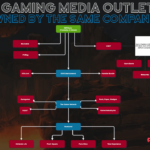
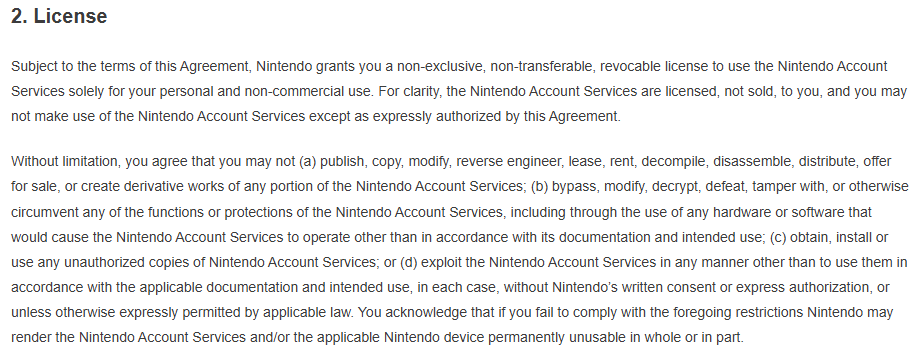
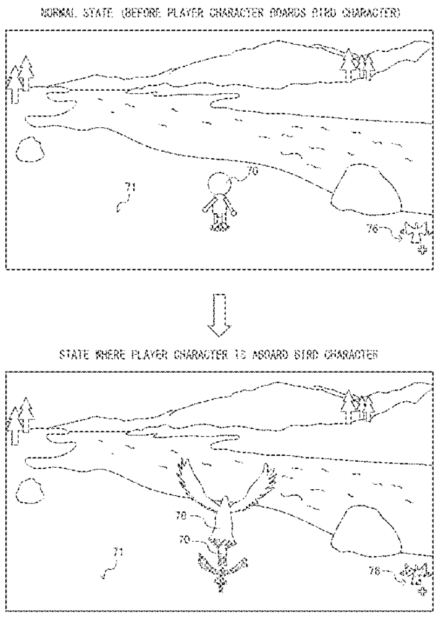
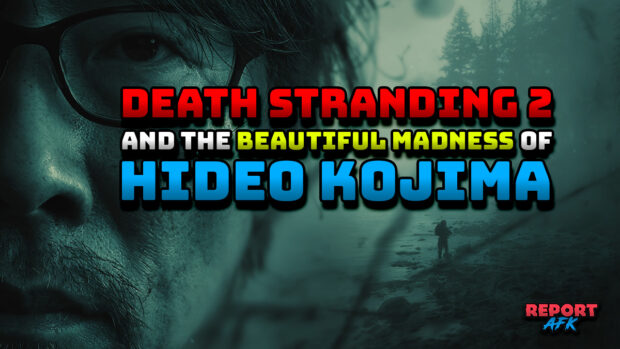
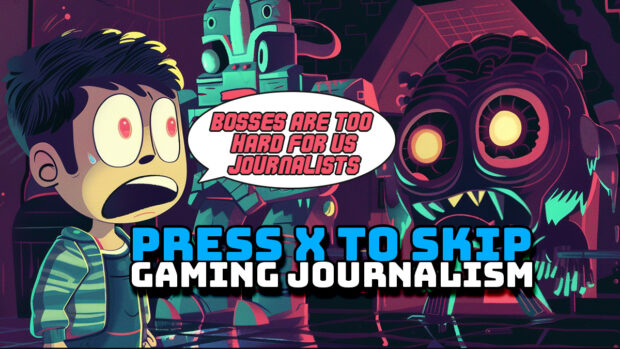
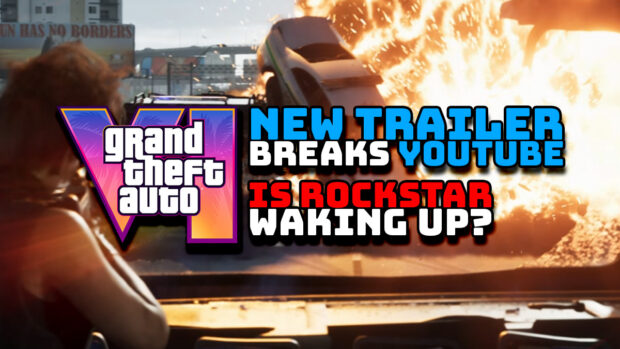


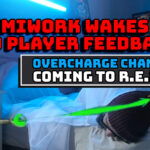

Rickolas
May 9, 2025
Damn that was a mic drop lmao
Shae
May 10, 2025
Ikr